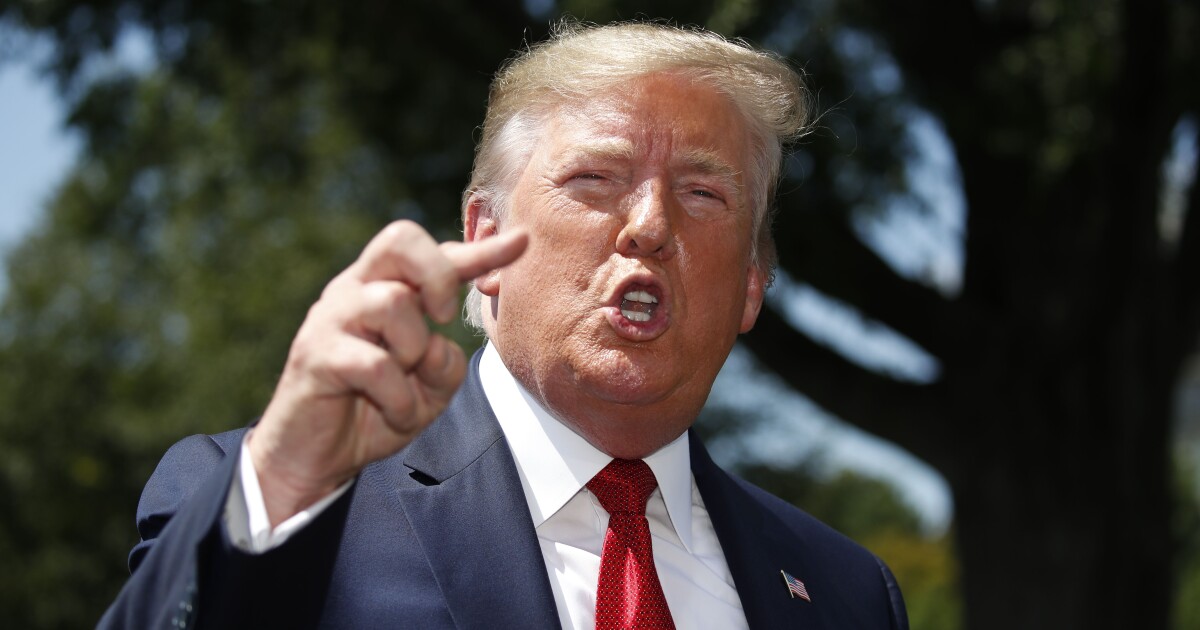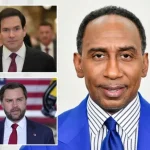

Justice Department officials appear to be maneuvering to block the disclosure of documents from the so-called “Russiagate” controversy, according to a top Pentagon official from the Trump administration.
Kash Patel appeared on Fox News on Sunday and defended former President Donald Trump’s claims that he issued sweeping declassification orders of documents after the FBI raided his Mar-a-Lago resort and seized more than a dozen boxes of materials in an investigation that could have national security implications.
MARK MEADOWS SAYS DOJ TRIED TO REDACT RUSSIAGATE MATERIALS ‘MINUTES’ BEFORE BIDEN SWORN IN
Patel, who was chief of staff to acting Defense Secretary Christopher Miller and held other high-ranking positions in the Trump administration, said Trump named him his representative to the National Archives, and they have been locked in a “bureaucratic battle” over documents that were taken to his Florida club.
Because there appears to be an “ongoing” counterintelligence investigation, he argued, “you will never be allowed to see the Russiagate docs or any other docs that President Trump lawfully declassified, and they will hide it from the public,” Patel told Sunday Morning Futures host Maria Bartiromo. Patel was being interviewed along with Devin Nunes, a former chairman of the House Intelligence Committee who is now the CEO of Trump’s social media company.
Special counsel John Durham is investigating the origins and conduct of the Russia inquiry, which Republicans have long criticized as being a drawn-out campaign to drag the 45th president. Patel previously claimed on Jan. 20, 2021, Trump’s final day in office, that “99%” transparency had been achieved, but on Sunday, he pared back that estimate to 60%.
There remains an air of mystery about the documents covered by Trump’s 11th-hour declassification memo at the end of his administration. The memo spoke of a binder of materials related to the Crossfire Hurricane investigation that Trump said the Justice Department provided to the White House at his request on Dec. 30, 2020.
“I hereby declassify the remaining materials in the binder. This is my final determination under the declassification review and I have directed the Attorney General to implement the redactions proposed in the FBI’s January 17 submission and return to the White House an appropriately redacted copy,” Trump said.
There were prior FISA-related instructions, which came in the form of tweets and a White House press release, that a judge ruled in May 2020 did not constitute formal declassification orders. Trump tweeted again about authorizing the “total Declassification” of Russiagate documents in October 2020, after which the Department of Justice argued there was no order, and White House chief of staff Mark Meadows submitted a sworn declaration in which he said Trump indicated to him that his statements on Twitter were not “self-executing declassification orders.” A judge then accepted the White House statement as rescinding Trump’s tweets.
In a post to his Truth Social social media platform on Friday, Trump claimed a “standing order” allowed him to declassify documents as soon as they left the Oval Office.
CLICK HERE TO READ MORE FROM THE WASHINGTON EXAMINER
FBI agents recovered 11 sets of classified information, with some marked as top secret, among 20 boxes of items, during the raid on Monday, search warrant documents unsealed on Friday show. The unsealed documents also show the former president is being investigated for a potential Espionage Act violation and possible obstruction of justice. Trump has denied any wrongdoing.
Although no president has ever been prosecuted for mishandling classified material, some experts dispute the notion that one could suddenly deem something declassified and argue that the president must instead follow a formal process. As to Trump’s new statement about a standing order, they argue that what he described is not possible or at least very unlikely. Glenn Gerstell, the top lawyer for the National Security Agency from 2015 to 2020, even called it “preposterous,” according to the New York Times.
Patel, who was also a top investigator for the House Intelligence Committee, said Congress “has a monumental lift” ahead of them, alluding to investigations Republicans have pledged to lead if they win control of one of both chambers in November. “They better start subpoenaing these documents immediately and putting these people before the American public,” Patel said. He also criticized Attorney General Merrick Garland and FBI Director Christopher Wray, saying they have become “political hucksters.”






